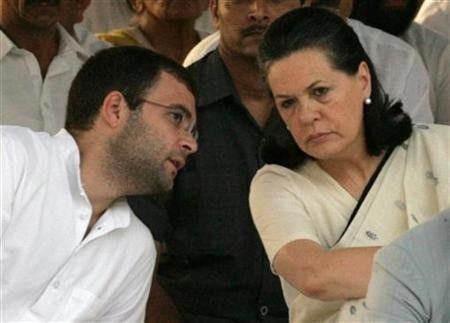UP Exit Polls Reflect a Blow for Congress

Rahul Gandhi failed to deliver the election comeback he had promised for the Congress party in the politically crucial state of Uttar Pradesh, according to voter surveys released after the phased, month-long poll ended Saturday.
Official results will not be known until Tuesday and it was not clear how accurate the handful of post-election surveys would prove, though they all showed similar trends.
If confirmed, such a setback for Congress would make it harder for Prime Minister Manmohan Singh's already weakened coalition government to pursue reforms that could shore up economic growth, which has slipped below 7 percent.
The surveys showed the Samajwadi Party winning by far the largest number of seats in the legislative assembly of Uttar Pradesh, which with 200 million people has a larger population than Brazil.
This would almost certainly mean a return to power for Mulayam Singh Yadav and the ouster of flamboyant low-caste leader Mayawati as the chief minister.
Rahul Gandhi, scion of the Nehru-Gandhi dynasty that has ruled India for most of its six decades of independence, had staked his political future on reviving the centre-left Congress party in a state where it has not held power for 22 years.
Congress, which heads the federal coalition government, won only 22 of the 403 assembly seats in Uttar Pradesh's last poll.
Surveys showed Congress was likely to roughly double that tally this time, but fall short of the 60-plus figure it had predicted Rahul would deliver with his tireless campaigning across the state.
Political columnist Swapan Dasgupta said on a TV news network show that Congress had emerged as a monumental loser.
But elections in the world's largest democracy, which has a population of 1.2 billion, have proven notoriously hard to predict in the past, and Congress officials were defiantly upbeat about the party's chances despite the surveys.
I don't trust them (the surveys). We are doing much better, Digvijay Singh, the party's general secretary and a prominent Gandhi ally, told Reuters by text message.
DEFEAT FOR THE FAMILY
Rahul's mother, Sonia, the Italian-born leader of the Congress party, and his sister, Priyanka, had joined election rallies in the sprawling state, hoping to lift the fortunes of the party and the central government, which have sagged since 2010 amid high inflation and a string of corruption scandals.
Not only did Rahul Gandhi invest a lot of capital in this election, the whole Gandhi family invested a lot, said Vinod Mehta, a political commentator. You can say this is not just a defeat for Rahul Gandhi, it can be interpreted as some sort of defeat for the pulling power of the Gandhi family.
Uttar Pradesh, which would be the world's fifth-most populous country if independent, sends 80 lawmakers to the 543-seat parliament in New Delhi, making control of the state crucial to running the federal government.
A good result there would have breathed new life into the second term of the prime minister, whose government slipped into policy paralysis last year as the country's stellar economic growth slowed and pressure mounted over corruption.
A modest showing in Uttar Pradesh could weaken Congress further as India gears for a general election due in 2014, and make it harder for Singh to steer through land reform and an opening up of the supermarket sector to foreign players.
The son, grandson and great-grandson of former prime ministers, 41-year-old Rahul Gandhi is considered likely to take over as prime minister from Singh if Congress wins another term.
However, a recent nationwide opinion poll found only 17 percent of respondents favored Gandhi as the next prime minister and one of the post-election surveys in Uttar Pradesh showed just 8 percent wanted him as the state's chief minister.
More than a third of Uttar Pradesh voters wanted Yadav as chief minister, a post the former wrestler has held twice before.
Despite the apparent blow in Uttar Pradesh, surveys showed Congress was set to win power in at least two of four smaller states that went to the polls since the end of January.
© Copyright Thomson Reuters 2024. All rights reserved.





















